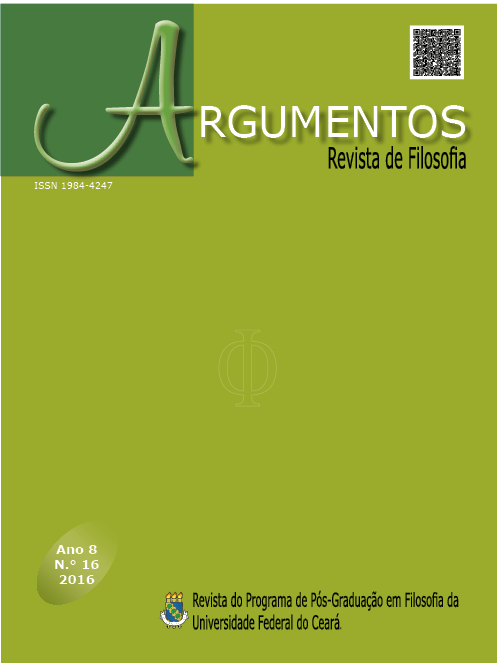Nietzsche and the έγώ είμ double character of Jesus' affirmative ethics
Keywords:
Ethic. Affirmation. Jesus. Practice. Nietzsche.Abstract
The expression “I am” joins in itself all that dimension of affirmation of yourself. This affirmation, at the same time, that show all of itself also reserves big part of that could show the scope of mistery, of non said, of unsaid, but not say for not empty itself. This is the intention of Evangeslist John by occasion of wording of his Gospel – Reaffirm all of that density of liberty and action typical of Judaism, when God himself of Israel says of himself that Is who is. Saying that is, on the one hand, reveals a metaphysical character, and, on the other hand, an existencial character, that is, cannot frame in only one category, but is open to all. Considering these two characteristics, how Nietzsche appreciates the dimention of ethical affirmation that so clearly it appears of Jesus practice?Downloads
Published
Issue
Section
License
Argumentos magazine is licensed under an International Creative Commons Attribution License.
The Magazine uses CC BY inclusion
1) The authors retain the copyright granted to the magazine or the right to initial publication, with the work regularly licensed under the Creative Commons Attribution, which allows the sharing of the work with acknowledgment of authorship and initial publication in this magazine.
2) The authors are authorized to contract additional applicable contracts, for non-exclusive distribution of the version of the work published in this journal (for example, publication in the institutional repository or as a chapter of the book), recognition of authorship and initial publication in this journal.
3) Authors are authorized and encourage to publish and distribute their work online (for example, in institutional repositories or on their personal pages) at any time before or during the editorial process, as they can generate productive changes, as well as increase the impact and reference of published work.




.jpg)










._._3.png)
1.jpg)
._._._.png)
